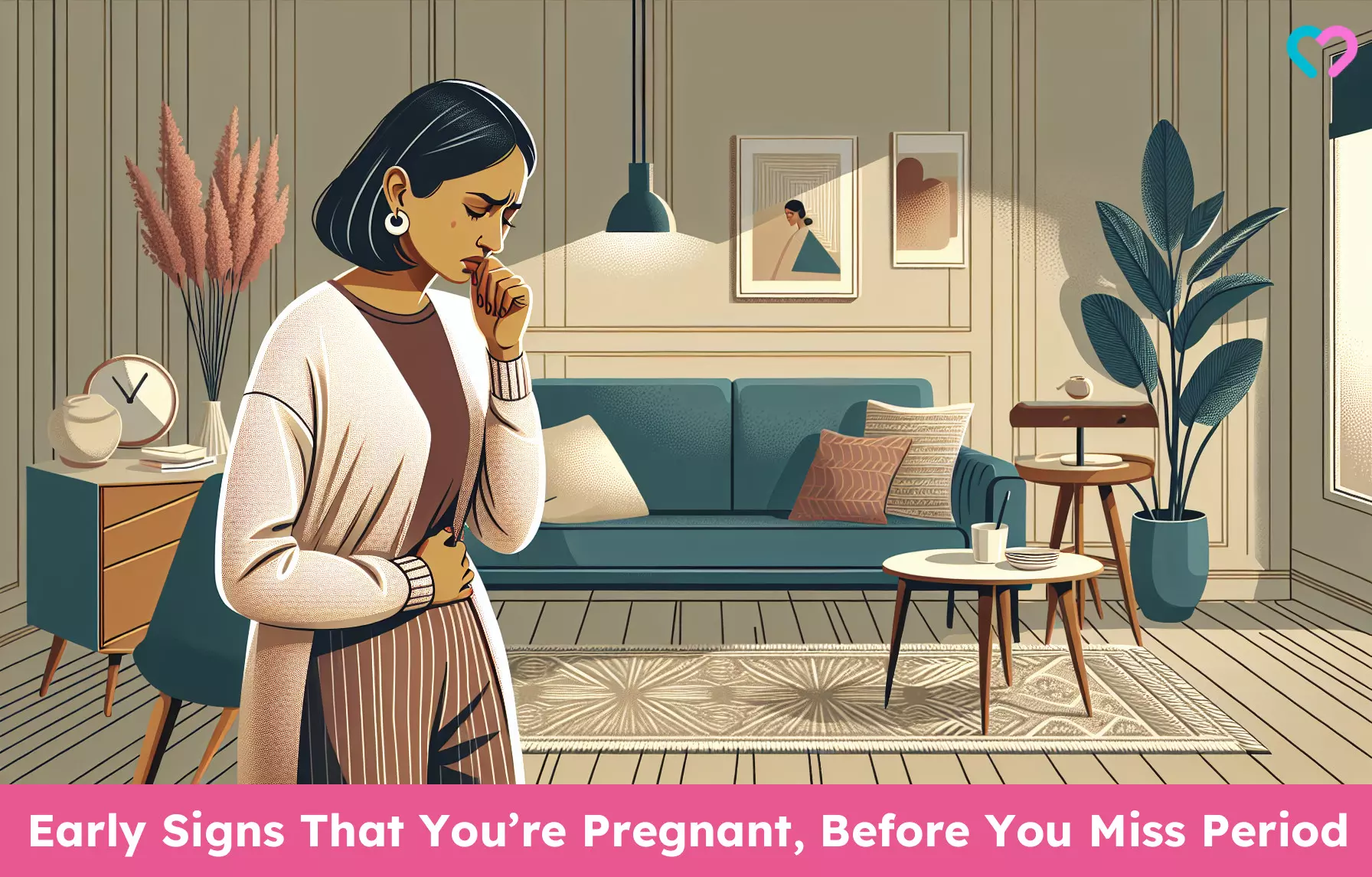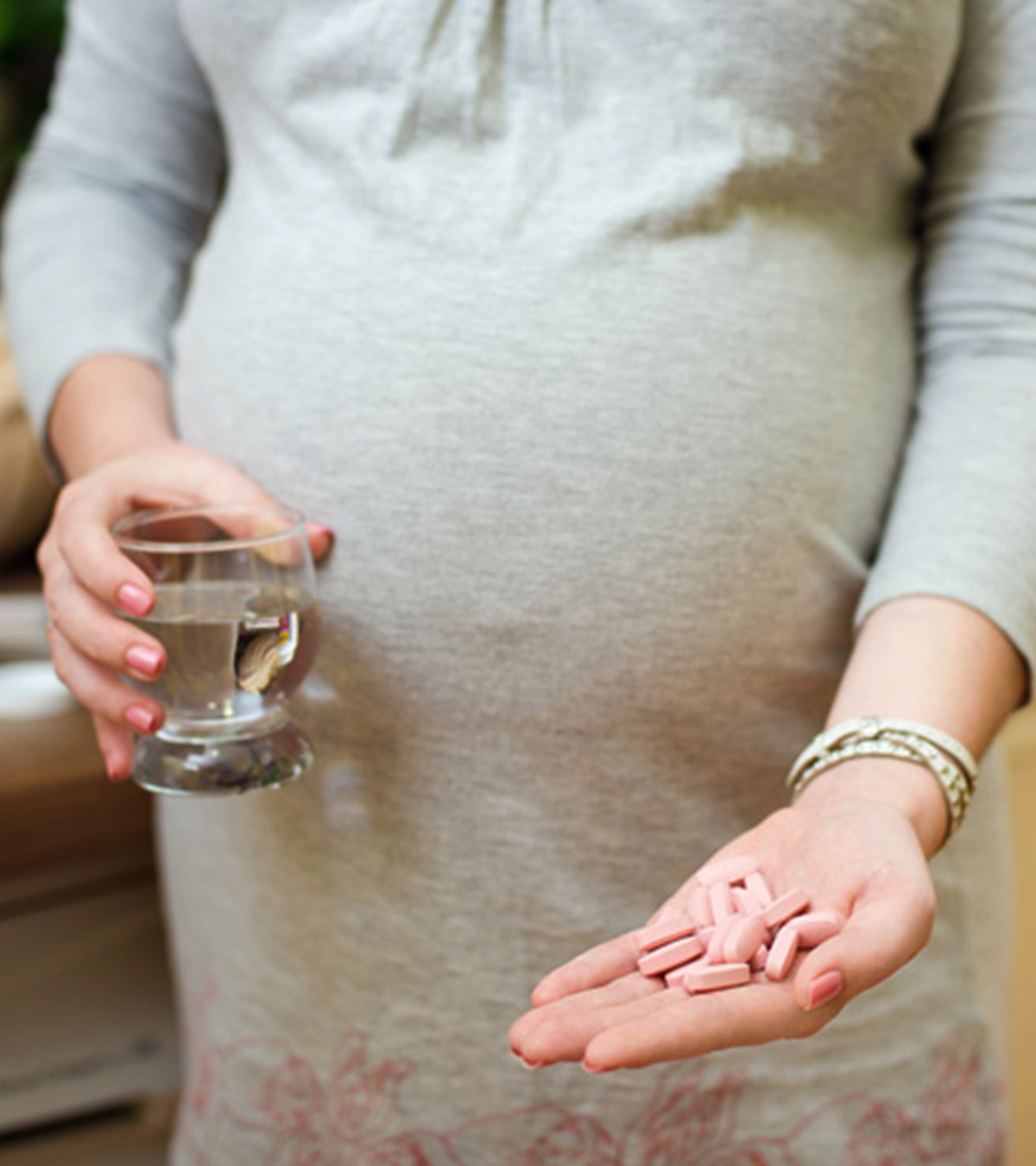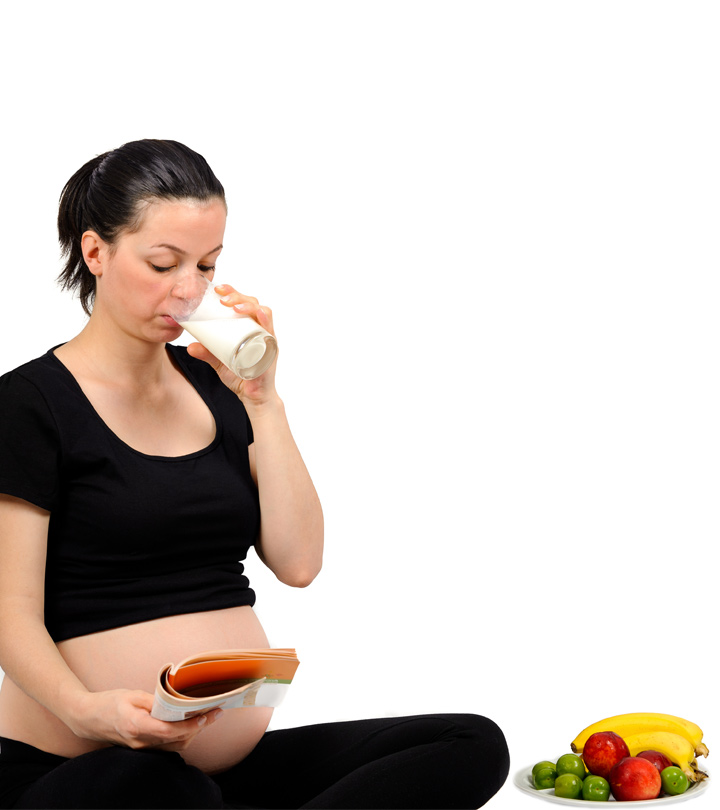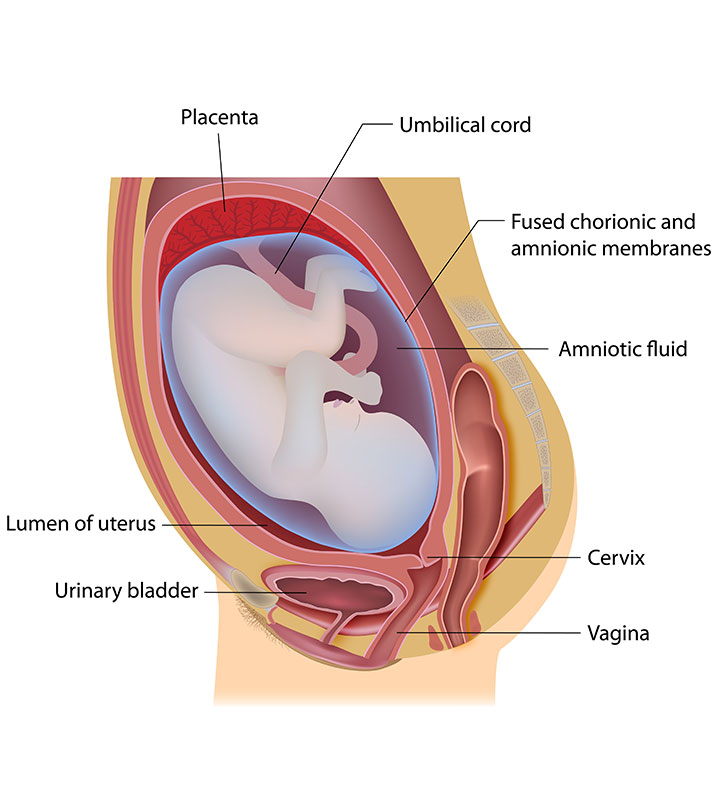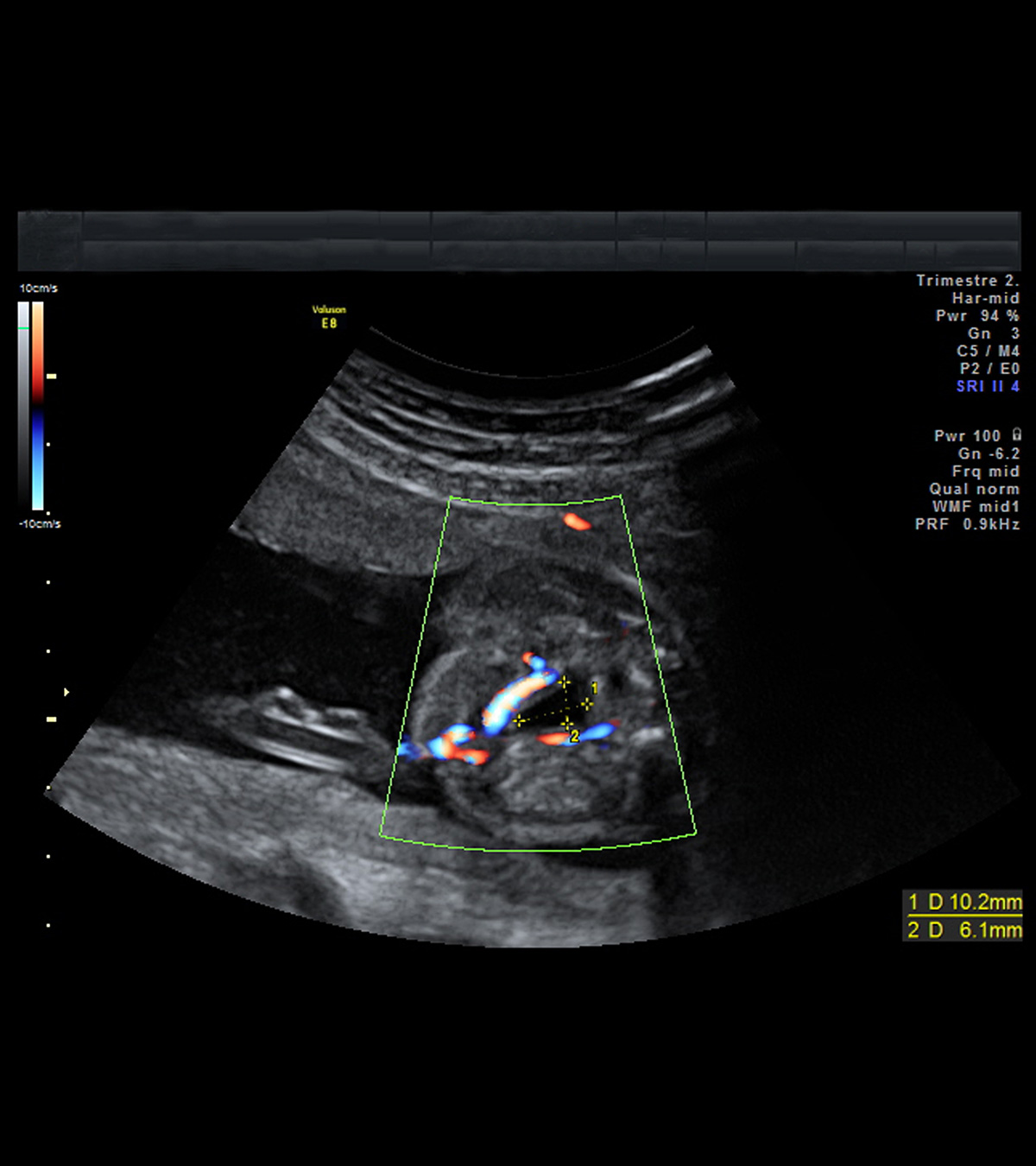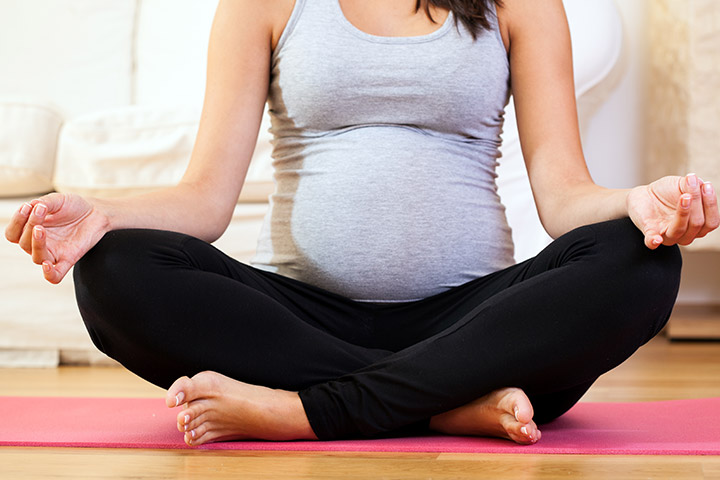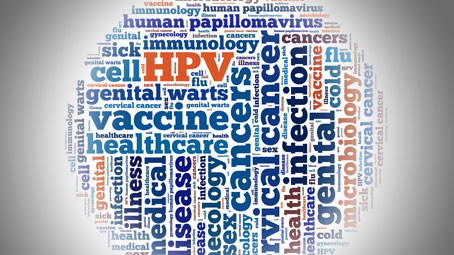
Image: Shutterstock
You are trying to conceive and are looking for signs that you are pregnant. So what signs should you look for? The first and most crucial sign confirming your pregnancy is your missed period. But the risk with at-home pregnancy kits is that they might sometimes give false-negative or false-positive results. Thus, it is essential to visit a gynecologist or perform a medical test to confirm your pregnancy. We will tell you about that and more in this post.
Sometimes, you can tell whether or not you are pregnant even before missing your period. How? By tracking the symptoms. There are certain symptoms of pregnancy that are different from those of PMS. If checked properly, you might understand these symptoms and get your result.
However, it is also advised to get an opinion from your doctor or medical professional for a confirmed result. So read on to learn about these symptoms that can help you understand whether or not you are pregnant.
PMS Symptoms vs. Pregnancy Symptoms
Image: Shutterstock
PMS (pre-menstrual syndrome) and pregnancy symptoms are quite similar, but some of them (such as basal body temperature, darkening areolas, nausea, food aversions or food cravings) may become more pronounced and severe in pregnancy. Taking a pregnancy test could be the best way to figure out if these are signs of conception or the effects of PMS (1).
Early Symptoms Of Pregnancy Before Missed Period
While a missed period is a prominent sign of pregnancy, there could be other bodily symptoms you experience before your period is due. Keep reading to know more about them.
1. Implantation bleeding and cramping
If you have unprotected sex during your fertile window, there is a chance that you might get pregnant. Implantation takes place when the fertilized egg attaches to the lining of the uterus. If that happens, you may experience implantation bleeding and abdominal cramps around the same time your period is due (2).
Implantation bleeding is light, and you may notice just a few drops of blood in your panty or while wiping your vagina. According to the American College of Obstetricians and Gynecologists, bleeding during the first trimester happens in about 15 to 25% of pregnancies. Therefore, some expecting women may notice it, while others may not.
2. Basal body temperature
Basal body temperature is considered to be an indicator of ovulation. A week or so before ovulation, your basal body temperature may be around 97 to 98°F, which is the average in the pre-ovulation state (3). One to two days after ovulation, your BBT usually increases by 0.5 to 1°F and decreases after your period ends. Most women tend to feel warmer during pregnancy, but there is no evidence to suggest that this is due to high basal body temperature.
The changes in the basal body temperature are subtle and not easy to measure. Moreover, you need to track it through the month, which makes it a less practical indicator of ovulation or pregnancy.
3. Sore, tender, and heavy breasts
Image: Shutterstock
When you conceive, hormonal changes in the body could result in tender or swollen breasts with veins around the breast becoming visible, darkening of the areola, and tingling of the breasts. These changes may occur as early as one to two weeks after conception.
These symptoms may be similar to those of PMS but may be severe if you’re pregnant. If your period is late and you notice breast changes along with other symptoms, take a pregnancy test to be sure (4).
4. Fatigue
Fatigue without reason may also be an early symptom of pregnancy. A spike in the levels of progesteroneiA reproductive hormone secreted by the corpus luteum and placenta (during pregnancy) to prepare the uterus for pregnancy. hormone could make you tired and sleepy all the time (5). Additionally, as the body begins to produce more blood to support your fetus’ growth, you may feel exhausted, especially if you don’t get enough minerals, vitamins, iron, and fluids in your diet.
If you’ve been planning to conceive, talk to your doctor and take prenatal vitamins, avoid caffeine and associated products, and sleep well to fight fatigue. Note that fatigue could also be due to other health issues such as anemia, hypothyroidism, etc., and may not be the sole indicator of pregnancy.
 Quick fact
Quick fact5. Nausea
Nausea or morning sickness is a classic sign of pregnancy that you may be able to notice in the early stages. It could become prominent in the initial weeks around the missed period, even before your pregnancy is confirmed. You may feel dizzy, weak, and feel like throwing up at times.
Stacy Garska Rodriguez, a mother of three from Houston, Texas, writes on her blog, “During my last two pregnancies, I experienced severe nausea and morning sickness, though I only vomited a handful of times. While it was a relief not to be running to the bathroom all day long, I often felt so sick that I couldn’t get out of bed (i).”
You may feel nauseous at any time of the day, but early mornings could be the worst, which is why it is referred to as morning sickness. About 50 to 80% of women experience morning nausea, but the severity may vary (5). The condition may be worse in your first pregnancy but may subside with the eventual ones.
This symptom may start anytime between two and eight weeks after conception.
6. Bloating and feeling of tightness
You may feel your tummy is protruded, and your pants may get tight. A heavy or bloated feeling in the stomach is a common symptom of pregnancy before missed periods (6).
Bloating could be followed by farts and burps because of the progesterone hormone, which retards your digestion (5). However, bloating could happen due to other indigestion issues too.
7. Food aversions
You may start disliking the foods you once loved and even become averse to them, so much so that their smell or taste might make you nauseous (5). Aversion to foods could be common early in the pregnancy when nausea and vomiting are present. Some may get their appetite back by the second or third trimesters, but others may have to deal with it through the pregnancy.
“Smells were a big one for me, and I worked in a restaurant during my second pregnancy! It was a daily struggle to stay focused and keep from becoming sick around all that food,” Rodriguez says. She also mentions her food cravings: “During my last pregnancy, I craved Cocoa Pebbles cereal — it was a childhood favorite, but not something I ate often as an adult. However, as soon as I had my baby, I was over it!”
While the suggested cause of food aversion is an increase in progesterone levels, there is no substantial evidence to support the theory.
8. Dizziness
Image: Shutterstock
Dizziness and lightheadedness could also come early on in pregnancy, due to a change in the blood volume and pressure when the blood vessels dilate early in the pregnancy (7).
9. Mood swings
Feeling moody? It could be due to the hormonal changes after conception. The variations in the hormone levels may affect the neurotransmittersiChemical messengers in the brain that send signals throughout the body to carry out different functions. of the brain, resulting in enhanced emotions from spells of weeping to sudden anger outbursts (8). However, it is difficult to relate mood swings to pregnancy as women have mood swings before their period as well.
10. Constipation
An increase in progesterone levels might affect your digestive system. Your bowel movements may get harder as the hormones cause the food to pass slowly through the digestive system. If you develop constipation before your period is due, and you’ve had unprotected sex during the fertile period, you may have to take a home pregnancy test (7).
11. Headaches and backaches
Low blood sugar levels may cause headaches, as the brain cells try to cope up with the lower levels of sugar supply. If you have frequent headaches, then it could mean that the female sex hormones like estrogeniThe hormone that helps in the development of the female reproductive system and secondary sex characteristics. and progesterone are preparing the womb for the baby (9).
You could also experience lower back pain as your ligaments loosen up, and your body prepares to carry the weight of the baby (7). Implantation cramping, bloating, and constipation may also cause backaches during early pregnancy. Your sleeping positions could also be a cause of back pain.
If the pain is unbearable, go to a doctor for a proper diagnosis. Avoid taking over-the-counter painkillers, as self-medication can be harmful if you’re pregnant.
12. Drooling
Drooling is not a common symptom, but some women may produce excess saliva (referred to as ‘Ptyalism gravidarum’) if they are experiencing nausea or vomiting.
A couple of case studies reported excess salivation in pregnant women during the first trimester of pregnancies. However, further studies are needed to decide if this is an early pregnancy symptom (10).
13. Thirst
Women may also feel thirsty in the early stages of pregnancy (11), which could be due to an increase in blood volume or excessive urination. You may drink more water, and that may cause frequent urination, which in turn could make you feel thirsty again!
14. Urge to pee
Image: Shutterstock
An increased urge to pee is a typical pregnancy symptom that you may experience during the first few weeks. This could be due to the excess production of the blood, owing to the many hormonal changes that occur after conception (4). The kidneys work to filter more blood, filling up the bladder, and making you pee frequently.
15. Shortness of breath
You may begin having shortness of breath in the first few weeks of pregnancy since your body requires more oxygen and blood to share with the growing fetus. It may continue throughout the pregnancy as the baby grows, and the need for oxygen and nutrients increases (12). Having an exercise routine, sitting in a proper posture, taking slow deep breaths, wearing loose clothes, etc., could help in regulating your breathing.
16. Changes in cervical mucus
Cervical mucus is a fluid produced by the cervix due to estrogen hormone. Its quantity and quality change throughout the menstrual cycle. Most women have wet, stretchy, slippery cervical mucus during ovulation, which thickens and dries up after ovulation. However, if you become pregnant during ovulation, you may continue to produce some cervical mucus, thus indicating changes in the cervical mucus as an early sign of pregnancy. However, these noticeable changes in the cervical mucus may not be the same in all pregnant women (13).
You can check the consistency and quantity of your cervical mucus by using your fingers. Roll the mucus between your thumb and finger, pinching your fingers together, and gently separate them to see how thick it is. You may also use toilet paper to wipe the mucus and observe (14).
Some of these pregnancy symptoms are similar to those of PMS and may be ignored by most women. Also, a few others could be due to other medical conditions and should be checked by a doctor.
 Did you know?
Did you know?Are These Symptoms Reliable Enough To Confirm Pregnancy?
The symptoms we mentioned above are only possible indicators and not definitive signs that confirm a pregnancy. So even if you experience one or more of these symptoms, it may not always necessarily mean that you are pregnant. They are only the indicators of a possible pregnancy. Your pregnancy can be confirmed when a pregnancy test shows a positive result.
How Soon Can You Experience Pregnancy Symptoms Before A Missed Period?
You may start experiencing pregnancy symptoms around a week and a half before your period is due, or 12 to 15 days after ovulation (or conception, as it happens around ovulation time) (15). However, the onset of symptoms differs from one woman to another. Some women experience symptoms such as nausea, tender breasts, fatigue, sleepiness, and bloating within a week of conception.
Symptoms such as increased frequency of urination will usually occur around the time your period is due. Symptoms such as vaginal discharge, changes in the areola, and elevated body temperature appear eventually and can only be detected on close examination.
What Can Be The Other Causes For A Delayed Period?
Image: Shutterstock
Your period could be delayed due to many reasons other than pregnancy. They could be hormonal changes, excessive weight gain or weight loss, eating disorders (anorexia or bulimia), stress, polycystic ovary syndromeiA condition where the female body produces increased male hormone resulting in multiple cysts on the ovaries. , travel, thyroid, birth control pills, or drug use (16).
So, it is possible to miss your period and not be pregnant.
 Quick fact
Quick factIs It Possible To Be Pregnant And Get Your Period?
You are unlikely to get your period if you are pregnant. But as mentioned before, you may notice light bleeding or spotting in the early stages, also referred to as implantation bleeding. Sometimes, bleeding could be due to an infection, miscarriage, placental issues, or an ectopic pregnancy.
How Long Should You Wait To Take A Home Pregnancy Test?
Ideally, you should wait for one to two weeks from the time of ovulation to take a home pregnancy test (15). But you might get an accurate result if you wait until a week after your missed period. Home pregnancy tests detect hCG, which could peak during this period.
Right from the day you have sex during the ovulation period, your body is in the process of developing a new life inside you. While signs and symptoms before a missed period could indicate pregnancy, only a test may give you precise results.
Frequently Asked Questions
1. What does the discharge look like when pregnant?
Vaginal discharge during pregnancy is usually thin, white, and milky, and has a mild smell (17).
2. Do I feel dry or wet in early pregnancy?
Most women have increased vaginal discharge in pregnancy. It happens as the cervix and vaginal walls get softer and needs protection from any infection traveling up from the vagina to the uterus. Increased progesterone levels may also cause more fluid production. You can use panty liners if the wetness makes you uncomfortable, but avoid using tampons as they may introduce microbes (17) (18).
3. What can cause false pregnancy symptoms?
Medical conditions such as menopause, cancer, and uterine tumors may change a person’s hormone levels, causing pregnancy-like symptoms. In addition, pseudocyesis may also cause false pregnancy symptoms where the body psychologically manifests signs of pregnancy from the unconscious desire to be pregnant (19).
4. What pains are typical in early pregnancy?
Abdominal pain, backache, and leg pains commonly occur during pregnancy as the body adapts to the growing baby. Lower abdominal pain may be either a sharp or dull consistent pain or, at times, a mild pulling sensation that lasts for a few minutes, especially after sneezing, coughing, or shifting body positions. Back pains and leg pains often occur together due to changes in posture and may, at times, present as mild cramping that lasts for a few minutes (20).
It may sometimes be confusing to tell if you are pregnant or not before a missed period. However, knowing about the early signs of pregnancy can help you identify if you are pregnant. Although these signs may be common in menstruation, some are specific to pregnancy. Besides, you can check with a pregnancy test kit to confirm your pregnancy. However, if the symptoms exist and the test still shows negative, a medical test can provide you with an accurate result. Irrespective of the result, it is advisable to consult your ob/gyn if the symptoms persist.
Infographic: Signs Of Early Pregnancy
Besides a missed period, there are other typical signs of early pregnancy, as highlighted in the infographic below. However, not all women may experience similar symptoms, and if you think you are pregnant, you must take a legitimate pregnancy test and consult your doctor to confirm the pregnancy. Illustration: Momjunction Design Team
Key Pointers
- PMS symptoms and pregnancy symptoms are quite similar and should not be confused with each other.
- Common pregnancy symptoms before a missed period include fatigue, implantation bleeding, and food aversions.
- One might experience pregnancy symptoms about 12-15 days before their period.
- A home pregnancy test (after a missed period) can help determine whether or not a woman is pregnant.
- However, if the symptoms persist, it is advised to see a doctor for accurate testing.
Image: Dalle E/MomJunction Design Team
Personal Experience: Source
MomJunction articles include first-hand experiences to provide you with better insights through real-life narratives. Here are the sources of personal accounts referenced in this article.
i. 10 Tell-Tale Early Pregnancy Symptoms {Before Your First Missed Period};https://thesoccermomblog.com/early-pregnancy-symptoms-before-missed-period/
References
1. Pregnancy: Signs, Symptoms and Health; Regis University
2. Vaginal bleeding in pregnancy; NHS
3. Hsiu‐Wei Su et al.; Detection of ovulation, a review of currently available methods; Bioeng Transl Med (2017)
4. What are some common signs of pregnancy; National Institutes of Health (2017)
5. Am I pregnant? Early signs and symptoms; NCT
6. Signs of Pregnancy/The Pregnancy Test; University of Rochester Medical Center (2019)
7. Body changes and discomforts; Office on Women’s Health in the U.S. Department of Health and Human Services (2019)
8. First Trimester; The Children’s Hospital of Philadelphia (2018)
9. Headaches in Early Pregnancy; University of Rochester Medical Center (2019)
10. Shunji Suzuki et al.; Ptyalism gravidarum; N Am J Med Sci. (2009)
11. Thirst; NHS inform (2019)
12. Common symptoms during pregnancy; U.S. Department of Health and Human Services National Institutes of Health (2018)
13. Cervical Mucus; Cleveland Clinic (2021)
14. Cervical Mucus and Early Pregnancy; American Pregnancy Association
15. Pregnancy; U.S. Food and Drug Administration (2017)
16. Suzannah Smith; 9 Reasons Your Period Is Late (If You’re Not Pregnant); Texas A&M Health Science Center (2016)
17. Vaginal Discharge During Pregnancy; American pregnancy Association
18. Vaginal discharge during pregnancy; Pregnancy Birth & Baby
19. Pseudocyesis; Cleveland clinic
20. Common Changes During Pregnancy: First Trimester; Stanford Medicine
Read full bio of Dr. Sangeeta Agrawal
Read full bio of Swati Patwal
Read full bio of Aneesha Amonz











